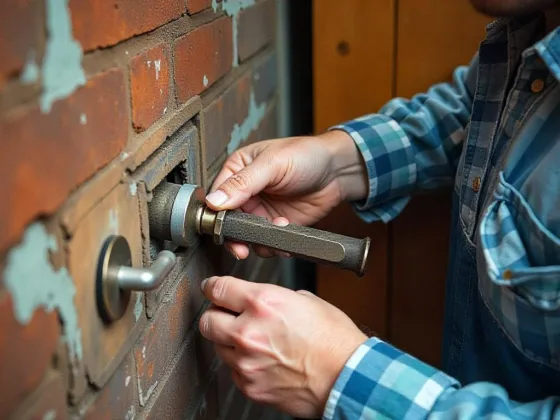Table of Contents Show
Did you know the average internet speed in the USA is around 50.2 Mbps?
If you’re having issues with your internet connection, you might not understand what you can do to speed things up. Do you need to choose another internet provider? Maybe your router is causing all the problems?

Read on to discover how to increase internet speed. With the help of these tips, you’ll no longer have to worry about buffering problems whenever you’re trying to watch your favorite show.
1. What’s Your Current Internet Speed?
Before you think about upgrading your internet speed, it’s generally a good idea to measure what your current speed is. In doing so, it becomes a lot easier to determine what is causing a slow connection.
Fortunately, measuring internet speed isn’t that difficult, and you can get the job done with the help of specialist websites.
These websites work well for both wired and wireless connections, and you can access them on desktop computers and mobile devices.
Once you’ve obtained a baseline internet speed, you can then compare it to internet speeds around your home.
If you find that there’s a significant drop the further away you get, there’s a good chance you’ll need a new router. However, if the speed remains stable, then you’ll probably need to upgrade your actual internet connection.
Read Also:
2. Will a New Router Help?
As mentioned above, there’s a chance you’ll need to upgrade your router, if you’re experiencing a slow internet connection.
Buying a new router can be tricky as there are lots of different models to choose from. At the most basic level, you need to make sure you select a router that works with the kind of internet you have.
For instance, if you have a ‘fiber’ connection, you’ll need a specialist router that can handle this kind of setup. However, if you’re using a standard ‘DSL’ connection, you’ll be able to choose from a broader range of routers.
It’s worth noting that some websites, like Amazon, often let you search the reviews of a given router. This is helpful because people tend to leave reviews that mention the connection they’re using.
Following this, you may be able to identify ahead of time, whether a specific router will work with your setup.
You can also find a good router by reading in-depth reviews of which provide a good overview of the latest tech.
You can generally find these reviews by going to Google and searching “best wireless routers“.
Note that sometimes, you might want to include the current month and year, so that you’re able to find the latest reviews.
In some cases, you can also find useful reviews on YouTube, and you can find such reviews by using the same method mentioned above.
3. Is a Wired Connection Best?
If you live in a relatively large house that has ‘thick walls,’ you might have WiFi problems no matter what router you buy.
If that’s the case, you might want to think about setting up a wired connection for your important devices.
This generally means you have an ethernet wire that runs from the router to your devices. While this solution isn’t elegant, it’s often the best way to get a stable, fast internet connection.
If you don’t know how to do this, your internet provider might be able to help you. If they can’t do this, you should reach out to a company that provides networking services.
4. Do You Need a Better Connection?
Earlier, we mentioned that an insufficient internet connection could also cause a slow internet speed. In a situation like this, you might need to upgrade your connection or use a different connection provider.
To begin with, you’ll want to get in touch with your existing supplier to find out if they’re able to provide a higher connection speed. If they can provide better speed, note down how much everything will cost.
When asking them about costs, make sure you also ask about installation fees, as these expenses can often catch a lot of people out.
This is especially the case if you’re going to upgrade to a different ‘kind’ of connection, such as fiber.
Once you have these figures, you can then think about speaking to other providers to see if anyone can offer a better deal. If you can, try to get prices from your existing supplier first, as rival companies are often willing to ‘beat’ an existing quote.
Note that a lot of providers will often ask you to sign a contract for a specified amount of time. When the contract is up for renewal, make sure you shop around, as you might be able to get a better deal.
5. Accountability is Important
In some cases, you might experience internet speeds that aren’t representative of what you’re actually paying for. For example, you might pay for a 40Mbps connection, but you may consistently get a 20Mbps connection.
If that happens, reach out to the company that is providing the connection. In most cases, they will do something about the problem, thereby improving your connection speeds.
However, if the problems remain, you might want to file a complaint with the FCC.
In doing so, you’ll be able to hold the company accountable, as they might not be truthful when promoting their internet speeds.
This will then hopefully result in them addressing the issue, thereby ensuring others don’t face the same problem.
Do You Know How to Increase Internet Speed?
You should now understand how to increase internet speed, even if you’re not tech-savvy.
Speeding up your internet connection can be a frustrating experience. That’s because many things can slow down your connection, and identifying the root cause of the issue can take some effort.
The time and money you spend on this task might cause you to have doubts about whether all this work is worth it. Yet you’ll be happy you went through all this effort when you experience the delights of a snappy connection.
Did you like reading this post? Make sure to read some of the other content we have on our website.









